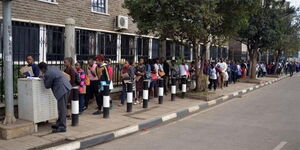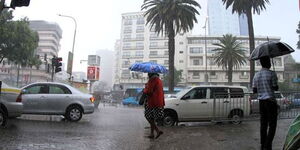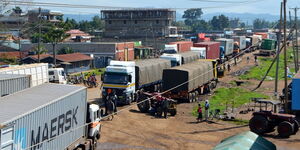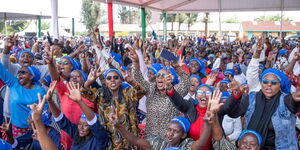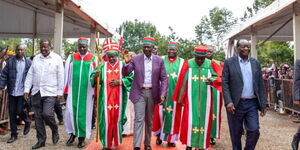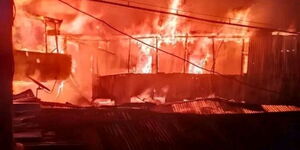Homa Bay Town Member of Parliament (MP) Peter Kaluma has called on the government to ban the British Broadcasting Corporation (BBC) in Kenya following a damning exposé on Sunday, April 27.
Taking to social media on Monday, the ODM MP stated that the documentary dubbed 'Blood Parliament' sought to incite Kenyans to fury.
Due to its crucial role in shaping societal conversations, Kaluma urged that the BBC's licence be revoked in Kenya, as the documentary was twisted, partial and reckless, in his opinion.
"Ban the BBC in Kenya. The role played by the media in any democracy is too important to be discharged irresponsibly. The media can build a greater democracy or destroy an otherwise stable state. Lest we forget, the Rwanda mass annihilation would not have occurred were it not for reckless media," Kaluma stated.
"Blood Parliament, a documentary by the BBC, is twisted, partial, reckless and intended to incite chaos in Kenya. The relevant agencies of the Government of Kenya must act fast to withdraw the BBC's licence in Kenya."
Kaluma's call for the ban eerily mirrors the events that followed the 2018 mock swearing-in of ODM party leader Raila Odinga that saw three television stations and several local radio stations taken off the air during the occasion, preventing Kenyans from following the proceedings.
The BBC documentary, which featured the events of the June 25 anti-finance bill protests that culminated in the succumbing of over 60 people, has gripped the nation since its release, with Kenyans reacting differently.
It featured interviews with vocal activists Boniface Mwangi and Hanifa Adan, a student journalist, Allan Ademba, who covered the protests on the frontlines, the Law Society of Kenya (LSK) President Faith Odhiambo, and Embakasi East Member of Parliament (MP) Babu Owino.
In the exposé, an analysis of over 5,000 images taken during the protests revealed that the Kenya Defence Forces (KDF) officers were behind the shootings of at least three protestors.
Although the reactions varied, most Gen Zs who participated in the protests expressed feelings of horror and a reminder of the tragedy that took their comrades' lives.
"The BBC documentary touched me somewhere, man. To hell with this government and all it stands for. At least we know it isn't standing with its citizens," one X user stated.
"For the BBC to air such a documentary, after all this while and IPOA had not done anything, it is an indictment of IPOA. It is time that Kenyans asked if we need IPOA or not. They are a toothless organisation and a burden to the taxpayer," another lamented.
Lawyer Miguna Miguna recalled having relayed information about hundreds of innocent people finished off in Githurai and cremated in Kahawa Barracks in June 2024 and called for investigations into the matter, noting, "At the very least, we must demand for an INDEPENDENT investigation and judicial inquiry into the brutalities committed by police, military, NIS, and Kenya Forest Service between 2024 and 2025. We need accountability and justice for the victims."
Kiambu Senator Karungo wa Thang'wa simply wrote, "Watching this, it hurts. It surely hurts!"
In the midst of this were people, mainly politicians and bloggers aligned with the government, who sought to discredit the documentary.
Some were unimpressed with some of the interviewees, while others saw it as a diversion from the country's growth since the tragic Gen-Z protests.

